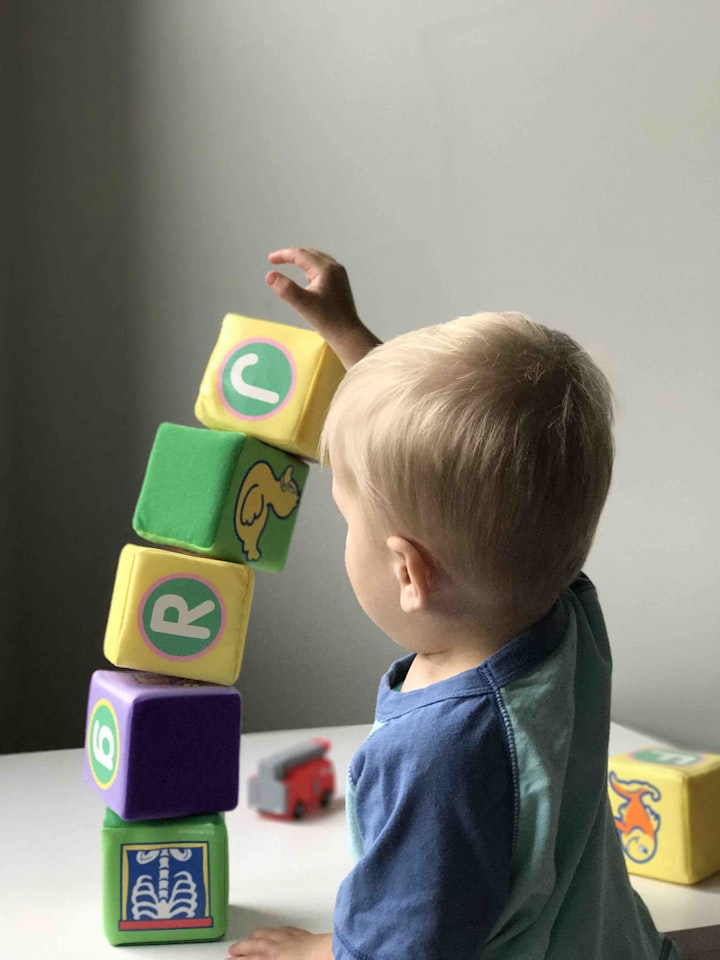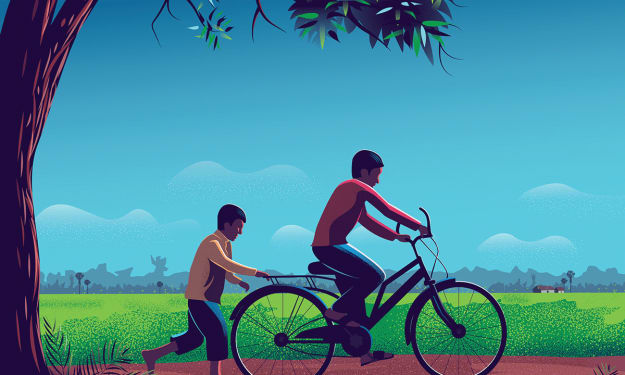
The three-year-old who hits, despite stern warnings to stop. The two-year-old screaming even after their parents have begged, pleaded, and punished them for peace. The four-year-old who cannot stop grabbing their siblings toys, even though they have their own.
They know better. You’ve told them, you’ve punished, you’ve pulled your hair out. Why won’t they stop?
Brain development. When children are born they have about 20% of their brain developed and the brain continues developing until mid-twenties, at least. The prefrontal cortex is the newest part of the brain from an evolutionary standpoint, and the last part to develop. The PFC is responsible for executive function, like decision making, emotional regulation, logic and… *drum roll* impulse control.
That’s why your preschooler and even into elementary school age struggles so much, even though you’ve explained the rules repeatedly. If they have an impulse, they cannot logic through to the consequence, they cannot bring up your reminder, and they cannot stop themselves from following through.
Even if it was only a moment before that you reminded them, they can only hold one idea at a time. You will need to be nearby to keep them on track.
Some strategies for life with someone with no impulse control
Connection first.
Connection allows us to lead others or follow. Our brains are designed to resist the will of people we aren’t connected with. Because preschoolers can only hold one thought at a time, unless we invoke connection before direction, their instinct to resist will be activated when we demand their attention especially if they are immersed in a TV show or play.
Connection should be undertaken simply for the purpose of getting kids to comply. Not only can kids feel that we aren’t truly connected, but relationships are something you build over time. Often parents will play with their child, and once playtime is over and the parent wants to move onto the next thing, defiance comes up.
“I just played with him for an hour,” the frustrated parent tells me. “Shouldn’t that be enough?”
Connection is a long-term strategy, and it does not mean your child will not have emotional upset or defiance. But if we keep connecting, day by day, and moment by moment, we can see those decreases in frustration over the long term.
Spend time connecting, but also in the moment when you need your child to transition from their agenda to yours, you will need to take some time and connect, climb into their world first and engage, then pull them into yours. Get down to their level, make eye contact, use their name, discuss what they are doing before you jump into direction.
Empathy first
Empathy is part of connection. If I’m frustrated with life, knowing that my partner or friend hears my upset helps me to move on.
Going back to the brain development, young kids are easily overwhelmed by emotions because their brain isn’t ready to handle them. They need us to help them learn to handle and express them with words. We do this by remaining calm, giving empathy, and after the upset has passed, giving them the words to express their emotions.
One of the best ways to gain cooperation is to talk about it before the situation arises. After connection, have a discussion about expectations. “When we are out, can I count on you to stay near me so you can be safe?” If they say yes, you can remind them while out they agreed to it. If they say no, you can talk about why they need to stay close and return to the request of cooperation.
Zero Punishments
Punishments break connection and activate counter will. They create power struggles and you vs them feelings. Separation based punishments are especially harmful to relationships you are trying to cultivate. And because preschoolers haven’t yet developed many skills, they aren’t helpful in teaching them self-control or what to do instead.
Collaborate on solutions
Teaching kids to find solutions to interpersonal problems is a skill they will use for a lifetime. It’s something we rarely think of when we are dealing with young kids, because we assume they can’t or we don’t have the time.
No solution that works long term is easy. This is one of those. It takes time to sit down and offer empathy, and once the upset is passed, then invite your child to problem solve. But it really works, and it really helps.
Read more: problem solving with kids
Knowing that a lot of the behaviors preschoolers have are developmental, parents often relax more with their preschool. We experience less frustration when we know it’s developmental rather than a choice young kids make to defy our directions. And I hope learning how to override those counter will instincts helps you connect and enjoy your preschoolers.
When do they mature?
Often parents want to know when they can expect their child to stop being illogical, emotional, and impulsive. And science says 5-7 years, but that’s only a sort of answer. I know from seeing my own kids, that even at 9 and 10 they can still be impulsive and emotional.
And then once they hit the teen years, their middle prefrontal cortex starts a new development process, which is why you often find a resurgence of impulse control combined with risk taking at this age. Teaching them brain development while keeping connection can help teens lean on you when making choices, but that’s another article for another day.
Need More? Get my gentle parenting guide





Comments
There are no comments for this story
Be the first to respond and start the conversation.